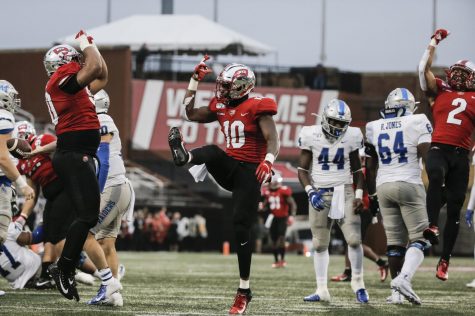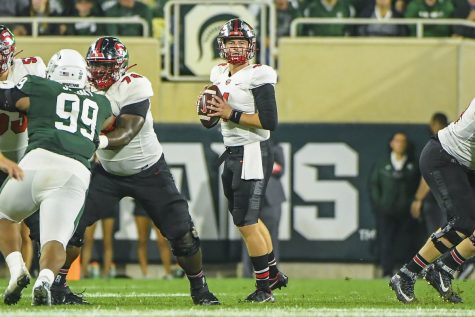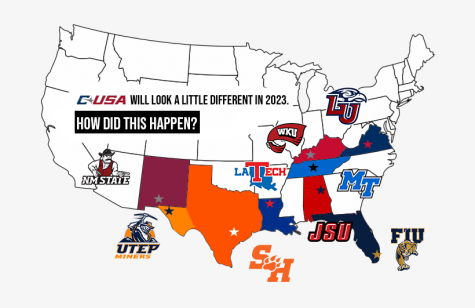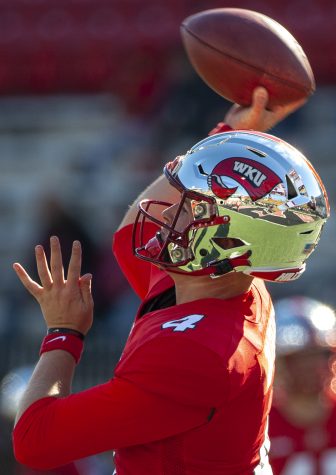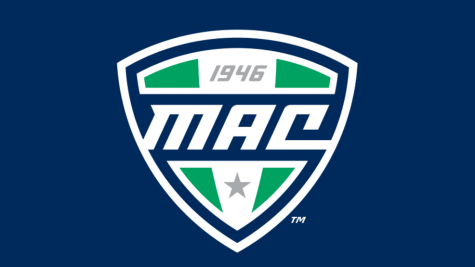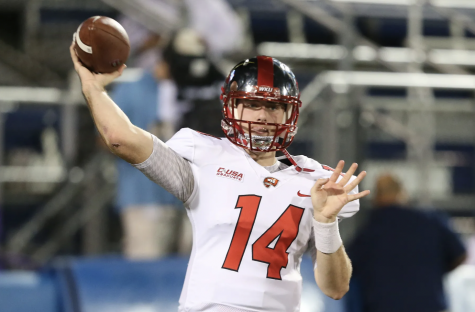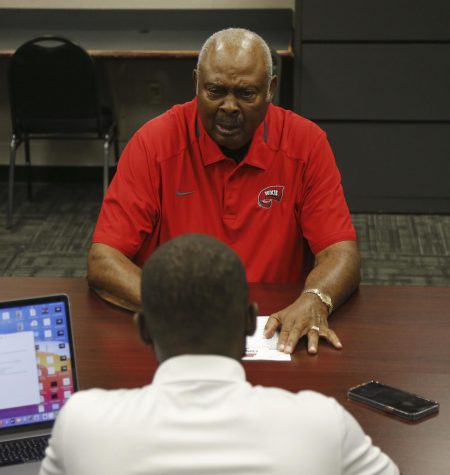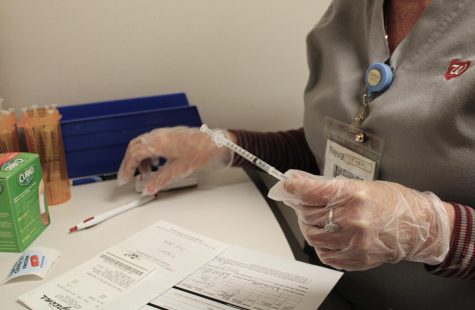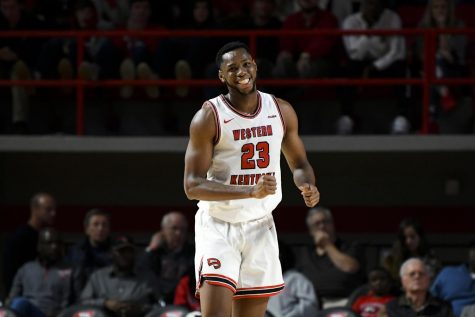Packers bring back Kevin King, adjust more contracts to create cap space — but Aaron Rodgers’ deal remains unchanged
March 24, 2021
GREEN BAY — The Green Bay Packers agreed to a one-year deal to bring back free agent cornerback Kevin King on Tuesday — and they did it with salary cap space they created by restructuring safety Adrian Amos’ and kicker Mason Crosby’s contracts.
They also did it without making any alterations to reigning NFL MVP Aaron Rodgers’ contract, despite an NFL Network report that the two sides were discussing a restructured deal.
Rodgers is under contract through the 2023 season, but he’s set to carry an NFL-high $37.5 million salary cap number in 2021. The remainder of the deal provides no financial or contractual guarantees the team won’t move on after the 2021 season to replace Rodgers with last year’s first-round pick, Jordan Love, as the starting quarterback.
King’s deal is reportedly worth $6 million for 2021, though the structure of the deal and how much money is guaranteed are unclear.
By bringing King back, the Packers will be able to keep their starting secondary together, with Amos, fellow safety Darnell Savage and second-team All-Pro cornerback Jaire Alexander all under contract for 2021. The Packers also made a qualifying offer to their fifth defensive back, restricted free agent slot corner Chandon Sullivan, meaning he should return as well.
King has had a star-crossed and injury-derailed four-year career in Green Bay since then-general manager Ted Thompson traded back and out of the first round of the 2017 NFL draft. In a deal with the Cleveland Browns, the Packers traded back from No. 29 near the bottom of the first round to No. 33, the first pick of the second round, where they took King out of the University of Washington.
The Packers got an additional fourth-round pick from the Browns in the deal, which they used to select ex-University of Wisconsin linebacker Vince Biegel. Meanwhile, after the Browns took Miami (Fla.) tight end David Njoku at No. 29, the Pittsburgh Steelers took another former Badgers edge rusher, T.J. Watt, at No. 30. In four NFL seasons, Watt has registered 49.5 sacks, including a league-leading 15 last season.
King, meanwhile, has played in only 41 of a possible 64 regular-season games in his first four seasons, and he missed five games last season with a quadriceps injury. King also dealt with Achilles’ tendon and back issues during the season and was questionable heading into the team’s 31-26 NFC Championship Game loss to the eventual Super Bowl LV-champion Tampa Bay Buccaneers at Lambeau Field on Jan. 24.
King was involved in a pair of game-changing plays that day that led directly to the Packers’ loss.
First, he gave up a 39-yard Tom Brady-to-Scotty Miller touchdown just before halftime, which he misplayed even though coach Matt LaFleur and defensive coordinator Mike Pettine had miscommunicated on the defensive call before the snap. Then, King was beaten on a third-down pass late in the fourth quarter by Buccaneers rookie wide receiver Tyler Johnson, with King trailing Johnson and pulling on his jersey — resulting in King being flagged for pass interference. That penalty allowed the Buccaneers to run out the clock and advance to the Super Bowl.
King had his best and healthiest season in 2019, when he played in 15 of 16 regular-season games and led the Packers with five interceptions. He credited a healthy, productive offseason and a renewed focus on being a professional for preparing him to have his best year.
“It’s all about consistency and all about staying on the field,” King said in December after returning to the lineup after the quadriceps injury. “So, I think I’ve done my role very well here. … All I can control is when I’m out there, how I play. Guys know me and everybody around this organization, they know me. They know what type of player I am, they know what type of person I am to this organization (and) just in general. We get to a Super Bowl, everybody’s happy. We win a Super Bowl, everybody’s happy.”
To create salary cap space to bring King back, the Packers pushed money from Amos’ and Crosby’s deals into the future. According to salary-cap tracking site OverTheCap.com, the Packers reduced Crosby’s 2021 cap number from $4.5 million to $3.16 million by reducing his base salary and converting a $1.25 million roster bonus into a signing bonus while adding voidable years to spread the on-paper cost out over future seasons.
Amos, meanwhile, started the offseason with a $9.3 million cap number but has made adjustments that have lowered his base salary, converted money into signing bonus form to spread over future years and added voidable years to his deal. His cap number, according to OverTheCap.com, now stands at $7.47 million.
All this has happened without general manager Brian Gutekunst and salary cap expert Russ Ball making any changes to Rodgers’ contract in the wake of the three-time NFL MVP acknowledging his uncertain future with the team after the loss to the Buccaneers.
The Packers did not convert a $6.8 million roster bonus into a signing bonus before the bonus was paid last week, preventing the team from saving the $4.53 million in 2021 cap room such a move would have created. Rodgers is still on the books for a base salary of $14.7 million in 2021, and the Packers could convert most of that salary into a signing bonus to spread the accounting over future years and create 2021 cap space.
The State Journal reported earlier this month the Packers had approached Rodgers’ agent, David Dunn, about restructuring his deal, but as of Tuesday afternoon, no changes had been made.
Rodgers mused after the loss to the Buccaneers that he was among the players facing uncertain futures with the team. Speaking on “The Pat McAfee Show” on SiriusXM Mad Dog Radio a few days later, Rodgers said that he didn’t “think there’s any reason why I wouldn’t be back,” before quickly adding, “but, look, there’s not many absolutes in this business.”
Later on the show, Rodgers added, “To me, a reality — not a certainty, or an absolute — is that my future is not in my hands. Now, that’s really the case for all of us, I think, as players. But you can’t, I think, naturally, there’s times when you let your mind go to maybe, ‘Well, I’m going to be a Packer for life.’ Or I’m going to be like a Tim Duncan or (Derek) Jeter or Kobe (Bryant) and play with one team my entire career. I think naturally you dream about that. That’s kind of like a dream scenario. I’ve talked about that most of my career.
“I think when they drafted Jordan, it was more just the reality kicking in, ‘Hey, that’s actually never the case. There are no absolutes in this business.’ And I think it’s a beautiful thing to sit with and wrap your head around it, and I did. And I got to a beautiful place about it. Doesn’t mean that’s not still a reality. I think that’s the only reality, is there is no absolutes in this business.”
Asked on Feb. 1 whether he felt Pro Football Hall of Fame caliber quarterbacks merited different treatment than, say, a special-teams linebacker would get from an organization, Gutekunst replied, “I think every player is different and different players merit different things. There’s no doubt about that.
“(Rodgers) is an exceptionally big part of what we’re doing and what we’re trying to do in the future. So as we attack this salary cap that we’re going to have to attack this season, there’s a lot of players (whose) contractual situations we’re going to have to address.
“I think that he is arguably the best player that I’ve ever seen or been around. The chances he gives us week-in and week-out are significant. So, he’s going to be part of our future and we look forward to all the runs we’re going to try to make here over the next few years.”
Photos: Packers’ 2020 season in pictures















